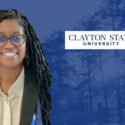 There have been many studies exploring the reason for the small percentage of Black and other minority students in STEM disciplines. But a new study led by Andrew C. Campbell, a professor of biology at Brown University, takes a different approach. Professor Campbell took 50 minority students from 15 different colleges and universities on a retreat and asked them about the shortfall.
There have been many studies exploring the reason for the small percentage of Black and other minority students in STEM disciplines. But a new study led by Andrew C. Campbell, a professor of biology at Brown University, takes a different approach. Professor Campbell took 50 minority students from 15 different colleges and universities on a retreat and asked them about the shortfall.
The students at the retreat identified eight ideas that could be used to increase the number of Black and minority students in STEM fields:
- Including a social justice component in STEM education. For example considering biomedical research in the context of health disparities.
- Training to help them better explain science to nonscientists, including family members who may be generally supportive but aren’t always familiar with research.
- Connecting STEM with other disciplines, including the humanities and the arts.
- Learning sooner than well into graduate school about the career paths that become available with an advanced STEM degree.
- Gaining guidance for achieving work-life balance. Older students may need this for child care, but even undergraduates may need it because they maybe helping to raise siblings or supporting other family members.
- Reconsidering evaluation metrics that fail to account for the diversity or that reflect a misunderstanding of cultural differences.
- Ensuring access to “invested mentors,” who show a genuine interest in their careers.
- Creating more opportunities for ancillary training, including parallel graduate degree programs, that allow for studies to evolve with changing or broadening interests.
The research, “NEST 2014: Views from the Trainees — Talking About What Matters in Efforts to Diversify the STEM Workforce,” was published in the journal CBE-Life Sciences Education. It is available here.










Interesting study.
Great Study…I conducted a similar study, “An Exploration of the Factors that Motivate Gifted and Talented Black Males to Engage in STEM”. It can be found at http://works.bepress.com/adrienne_coleman/
More Research needs to be conducted and programs implemented to increase the number of Blacks in STEM!